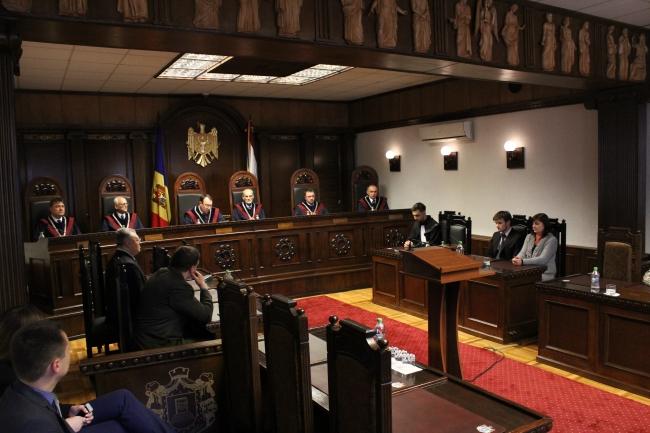Moldova: Constitutional Court finds guardianship violations, but will government listen?
Română: click aici
Today the Constitutional Court of the Republic of Moldova called time on guardianship, an outdated and unjust system that harms people with disabilities. This follows an international trend away from removing rights, and towards providing supports for people to make decisions about their own lives.
|
|
Guardianship entraps around 4,000 people in Moldova, a country with a population of 3.5 million people, all of whom are denied to live as they wish. They are denied access to their own money, not allowed to work, prohibited from voting and sent to far-away institutions where they are exposed to exploitation, abuse and sexual violence.
The abusiveness of the system is exemplified in the case of one woman in Moldova who fought through a divorce while under guardianship. The guardianship order meant her decisions were not legally valid, and she had to be represented by her guardian: in that case, her husband from whom she wanted a divorce.
Today the Constitutional Court dealt a blow to these sorts of absurdities. It struck down provisions of the guardianship law that restrict people’s decision-making rights and access to courts. The Court said that the law should be interpreted in a way that guardianship is only lawful as a last resort in the most limited circumstances.
Thanks to the judgment, people can now go to court directly to challenge their placement under guardianship. This means they can ask courts to restore their autonomy and control over their lives.
Oana Girlescu, MDAC Lawyer, said:
“The courts can play an important role in removing the shackles of guardianship. The government has submitted a draft law to Parliament that meets neither the standards of international human rights law nor the Constitutional Court’s findings. We ask that the government engages with local and international civil society to re-write the draft legislation.”
Dumitru Sliusarenco, Moldovan lawyer for “Promo-LEX”, one of the petitioners, said:
“I am happy that the Court has recognised the rights of people whose voices are not heard by many in society. The government needs to abolish guardianship and introduce alternatives, so that people can be supported to make decisions about their lives.”
In July, MDAC sent an “amicus curiae” brief to the Court. The UN human rights office in Moldova and the local charity “IDOM” also sent such documents. The judgment dealt with three joined cases filed by the country’s Ombudsperson, the former Ombudsperson for Psychiatry and lawyers from “Promo-LEX”. It follows a report we wrote with the UN last year, advocacy we have carried out at the UN in Geneva, and a report by the UN Special Rapporteur on Disability that we reported on in March.
Next year, the UN Committee on the Rights of Persons with Disabilities will review the country's disability rights record.
Notes
The communication released today by the Constitutional Court on the judgment is available here in Romanian.
For further information (in Romanian or English), contact Oana Girlescu: mdac@mdac.org.


